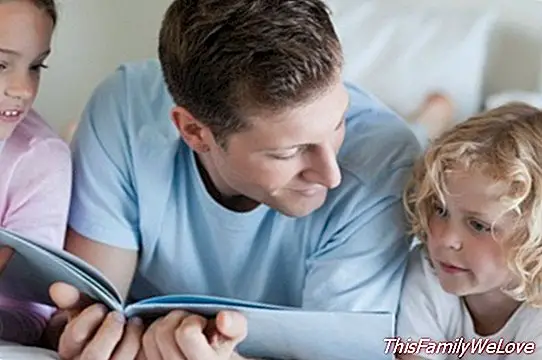Requirements for children to learn to read

Is there an optimal age to learn to read? What knowledge and skills should the child achieve to be guaranteed success? These questions have been, in recent years, widely raised by parents, educators and language professionals, giving rise to numerous investigations and all kinds of answers.
At 4 years old, the child is trained to learn to read
Some experts claim that at four years the children are already trained to read properly, while others think that it is preferable to delay the learning of reading until seven or eight years. A fairly widespread theory is the hypothesis that a child's ability to read correctly does not depend on their age, but on their maturity for reading.
As Carmen Lomas Pastor explains in her book How to make children readers, "In this maturity, variables such as laterality, spatial structuring and body schema would intervene.This concept of reading maturity, which will develop reading comprehension, was proposed by analogy with the acquisition of other skills such as speaking or walking, understanding that the same so that walking requires a certain degree of maturation of the muscles, bones and nerves of the legs, reading would require a certain maturation of the nervous system ".
However, it has been refuted by experts calling attention to the fact that this parallelism is in itself erroneous, since reading is not a natural skill of the human being that develops spontaneously and biologically determined; rather, it is an acquired skill that needs systematic teaching. Then, some exercises proposed to improve reading maturity, such as the stimulation of gross psychomotricity (crawling, adopting certain postures, etc.) will not necessarily help in this aspect.
What does a child need to learn to read
However, although to start reading it is not necessary to have acquired the psychomotor skills, the reading learning will be favored by the fact of having developed certain phonological, linguistic and cognitive aspects, such as:
1. Skill for phonological segmentation. It has been scientifically proven that the most important process for reading is the recognition of words, for which the mechanism of grapheme-to-phoneme conversion is essential. Once the child manages to isolate the sounds that make up the words, you can already understand that each letter represents a sound. This ability is called phonological awareness, and it is a highly complex task for children: although from a very early age they can separate syllables and words without difficulty, it is more difficult for them to separate phonemes, since it requires to consider as equals quite different sounds between yes (for example, the / t / sound is not perceived the same in "pie" as in "tren" or in "timbre", however it is the same phoneme). On the other hand, there are several forms of phonological awareness, some of which are acquired before reading, that is, they are the cause of reading; and others are perfected later, that is, they are its consequence.
Bearing this in mind, for reading preparation it will be important for children to develop at least the simplest forms of phonological awareness, through the segmentation of syllables (through songs, games ...), working the rhythm (through poetry) , riddles ...) and finally, the separation of phonemes, starting with those placed in the initial and final positions, and taking into account that not all phonemes have the same difficulty, so it will be necessary to sequence in time from the vowels until the stops.
2. Development of oral language. By understanding conversations, we carry out operations that are basically similar to those we perform during the reading. This implies that the child accustomed to understanding oral messages will have greater facility to describe the written ones. However, in everyday conversations, generally unsophisticated schematic sentences are used that continually refer to the context. On the other hand, when reading a text, a series of descriptions must be captured that allow us to follow the narrative thread.
Marisol Nuevo Espín
More information in the book:
How to make children readers. Carmen lomas Pastor. Ed. Word.




